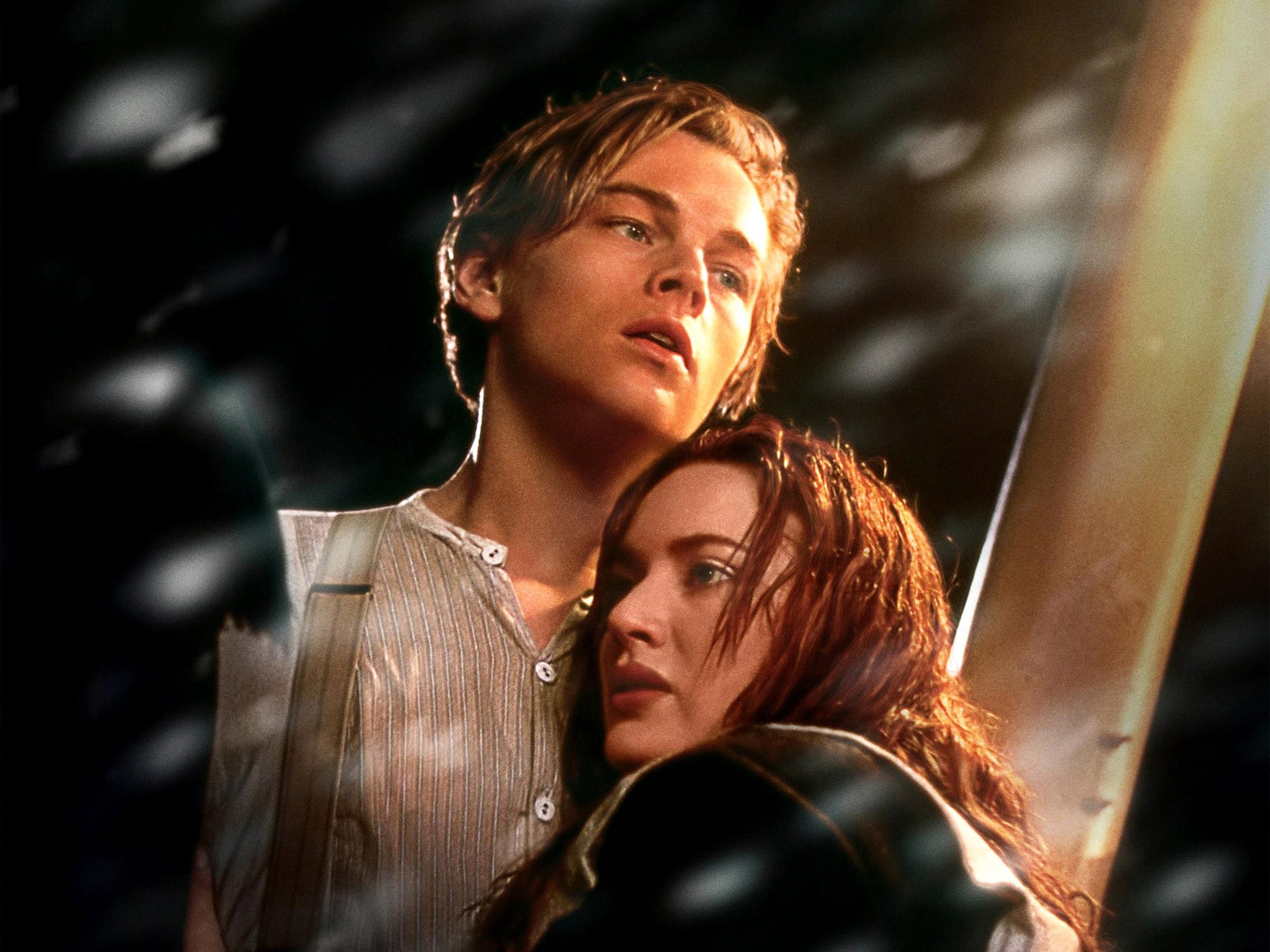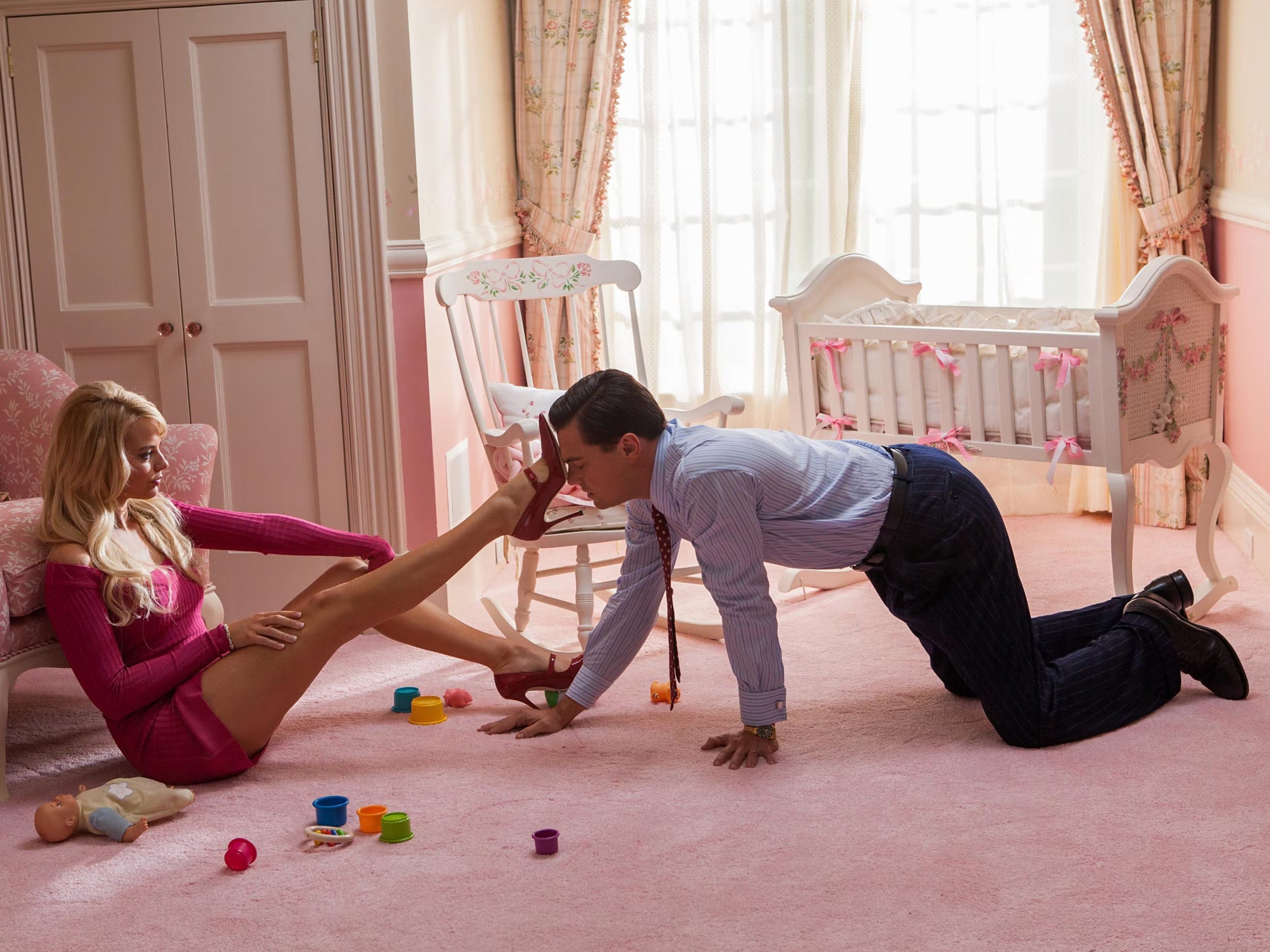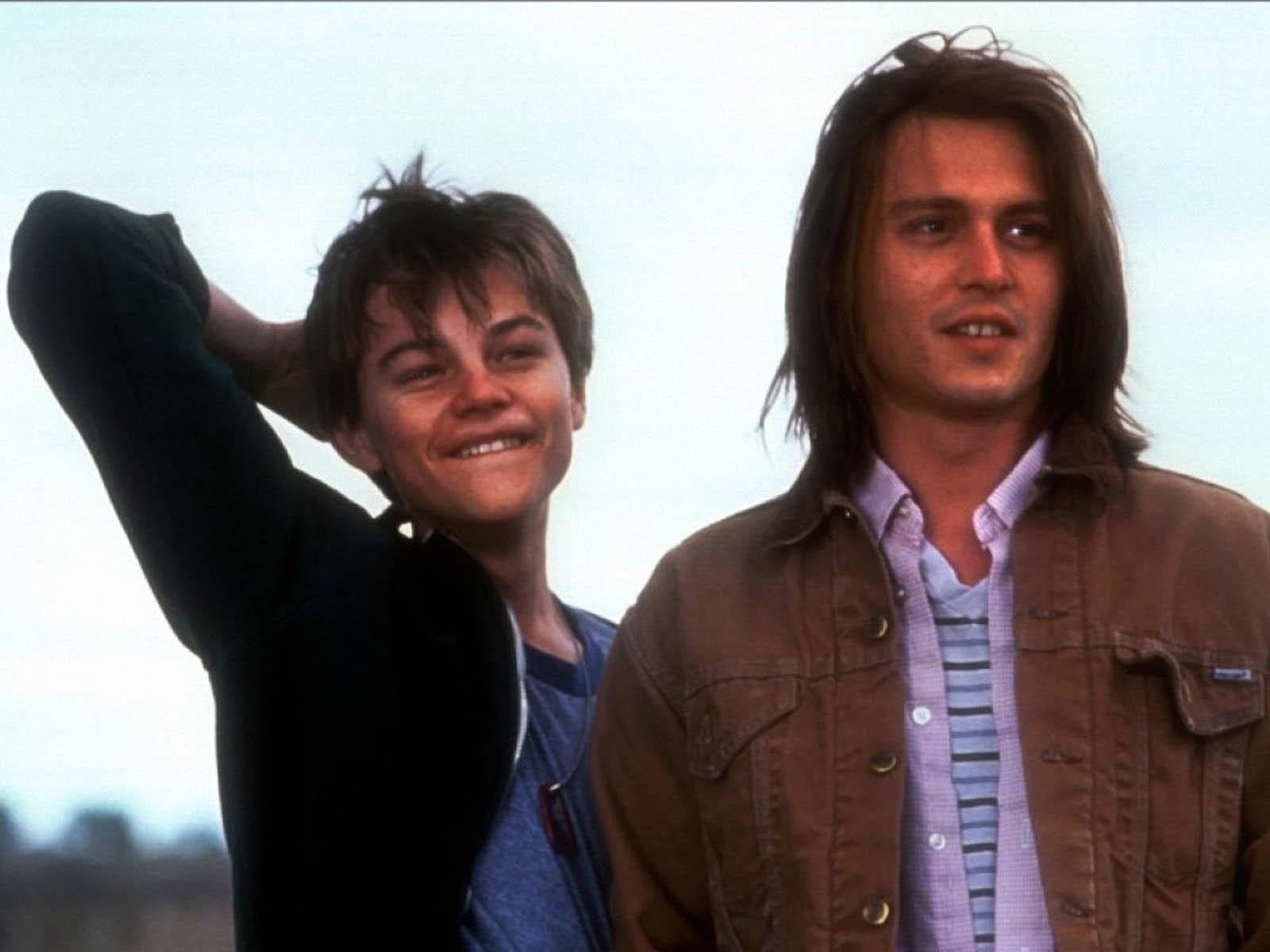Leonardo DiCaprio was always destined to be more than a Hollywood pretty boy
With ‘Titanic’ being re-released next month in celebration of its 25th anniversary, the film that turned DiCaprio into a star, Geoffrey Macnab looks at how its male lead defied the odds and turned himself into a full-blown Hollywood heavyweight

It’s 25 years now since the high point of “Leomania”. It was that heady period when actor Leonardo DiCaprio’s followers mobbed him with a fervour that put the behaviour of even the most diehard Beatles fans to shame. At least with the Fab Four, the hysteria was spread around the band. With DiCaprio, it all centred on him. You can still see the footage on YouTube: crowds of teenagers outside London’s Odeon, Leicester Square, shrieking out “Leo, Leo, Leo” before the UK premiere of James Cameron’s Titanic – the hit 1997 film is being re-released next month . He landed the role at 20 years old. But with his epicene good looks, he seemed far younger. He cut a diffident figure on the red carpet, waving politely at the onlookers, seemingly not realising that he was about to be skyrocketed to worldwide stardom.
News reports claimed that “hormonally-charged” adolescent girls had camped out for 12 hours or more just to catch a glimpse of him. If DiCaprio caused mayhem at Titantic’s premiere in London, he left downright havoc in his wake when the film reached Tokyo. “The streets looked as if Godzilla was running amok,” one US news station reported of the stampedes.
What was next? Would success spoil DiCaprio? How would his career evolve when his face was already plastered on walls the world over? These were questions worrying even his admirers.
The fanatical devotion of his younger fans didn’t seem to faze the actor himself, at least at first. “It’s fun… a nice, refreshing thing,” DiCaprio commented early in his career. It was a naive remark. That level of attention soon became unbearable. DiCaprio was a marked man. He has spoken of his alarm at waking up in his mum’s guest room, where he still lived in LA, and discovering several SUVs parked outside, full of paparazzi determined to take his picture. “They just kept following me… every day of my life,” he said in amazed indignation.
Cinemagoers swooned over him. Many watched Titanic multiple times, perhaps hoping that if they saw it often enough, he might end up surviving the sinking ship. In one of the film’s famous scenes, DiCaprio’s character Jack rests his arm on the top of a door in the freezing Atlantic Ocean while his beloved Rose, played by Kate Winslet, lies on top of it waiting to be rescued. His death, probably from hypothermia, only added to his romantic mystique. His career had barely started but he was already arguably the biggest celebrity in the world.
DiCaprio wasn’t even a trained actor. He had begun his big screen career with a part in sci-fi comedy horror Critters 3 (1991) in which he shared the screen with fuzzy, flesh-eating aliens from outer space. He had done plenty of TV. What he considered his first proper movie role was as a young Jack the lad in the controversial Drew Barrymore/Sara Gilbert erotic thriller Poison Ivy (1992). The movie, about a teenage friendship turned sour, included lesbianism, incest, and suicide, and was attacked at Sundance for being politically incorrect. Sadly, by then, DiCaprio had ended up on the cutting-room floor.
Speaking to The Independent this week, Poison Ivy’s director, Katt Shea, insists it wasn’t her decision to edit DiCaprio out of the movie. She adored him.
“The part [of Guy] was for somebody who was kind of bullying the character played by Sara Gilbert. I couldn’t settle on an actor for it. It was only a very small part, a few lines. Leonardo came in and read for it and he wasn’t right for it but all I knew was I wanted this guy in my movie,” she recalls. “He was just incredibly magnetic.” DiCaprio was too sweet-natured to play a bully. “Leonardo doesn’t have a mean bone in his body,” Shea says. He had a lengthy monologue insulting Gilbert’s character, but it was taken out.
“I just loved him. I tried to keep him in the movie. I tried to keep the lines in the movie but eventually the executive at New Line overrode me and forced me to cut him out. I didn’t agree with that to the extent that I kept him in the credits even though his lines were cut. I thought, you know, I want him to get his residuals.”

At the wrap party, Shea had to tell Leo that his lines were cut. “It was heartbreaking, really heartbreaking. I thought he was fabulous,” she says.
In spite of this humiliating reversal, it was apparent from the starring roles he quickly landed in subsequent films – released only a year later – that Shea was right about DiCaprio’s star power. In the biographical coming-of-age drama This Boy’s Life (1993), he starred as Robert De Niro’s stepson, the writer Tobias Wolff, whose memoir the film is based on, and in romantic drama What’s Eating Gilbert Grape (1993). DiCaprio, then only 19, received his first Oscar and Golden Globe nominations for Best Actor in a Supporting Role as Johnny Depp character’s younger brother, the mentally challenged Arnie.
The camera loved him. It wasn’t just his smouldering good looks. A fiery, emotional quality shone through, too. He had solid counterculture credentials. His father George DiCaprio was a distributor of underground comic books and was best friends with Fritz the Cat creator, Robert Crumb. DiCaprio had been cast as a heroin-addicted high-school sports star in The Basketball Dairies (1995) and was adept at playing rebels and outsiders. It was little surprise that he was initially resistant to appearing in something as mainstream and vanilla as Titanic. Director Cameron said in a recent interview with People magazine that DiCaprio thought the project was “boring” and didn’t want to be a leading man anyway. It took some persuading to get him aboard Titanic.
Largely thanks to DiCaprio’s presence, Cameron’s shipwreck saga, which the director had pitched as Romeo and Juliet at sea, went on to make over $2bn at the box office.

Generally, when actors reach this level of popularity, it’s downhill all the way. Against the odds, though, DiCaprio, now 48, has thrived. Since Titanic’s success, he has racked up multiple Oscar nominations. He has also become a respected producer through his company Appian Way, making a string of well-received environmental documentaries such as Before the Flood (2016), about the threat of climate change, and Cowspiracy (2014), which explored the impact of animal agriculture on the environment.
The same traits that distinguished the actor at the start of his career are still evident. He is both mischievous and wholesome, a very clean-cut rebel – and one who always seems to have a cause. He may be wrestling a bear, as he famously did in 2015’s The Revenant, a role which won him an Oscar, or in a catatonic torpor after a Quaalude binge, as seen in 2013’s The Wolf of Wall Street, but he holds onto his dignity. Like the wealthy and mysterious Jay Gatsby in Baz Luhrmann’s The Great Gatsby (2013), he has a detached, calculating quality and often seems aloof from the events in which he is participating.
Not long after Titanic, DiCaprio starred in Danny Boyle’s The Beach (2000), taking over a role as a backpacker originally earmarked for Ewan McGregor. The film wasn’t warmly received. DiCaprio was nominated for a Golden Raspberry award for worst performance of the year. Ironically, the film’s relative failure had a balming effect on his career, cooling down the hysteria which surrounded him.
Several of DiCaprio’s later movie characters were similar to Jack in Titanic. In one of his best roles, as the reckless young con artist Frank Abagnale in Steven Spielberg’s Catch Me If You Can (2002), he again uses his trademark charm to cross social boundaries, but this time he is busy hoodwinking his victims. They like him so much that they half enjoy being swindled by him.

When he played Amsterdam Vallon, the Irish thief out to avenge his father’s death in Martin Scorsese’s The Gangs of New York (2002) set in the mean and muddy slums of the 19th-century Big Apple, one US reviewer complained that DiCaprio was “too pretty for the neighbourhood”.
It’s a familiar criticism. Leonardo was so young and handsome that it seemed incongruous to cast him in darker dramas. However much make-up or facial hair he wore, or inner angst he projected, he couldn’t quite turn himself into a Marlon Brando or De Niro.
The collaboration between DiCaprio and Scorsese may have started as a marriage of convenience – to get his movies financed the director needed the most bankable young star available – but it has yielded some memorable work. Their partnership has also now endured for more than 20 years. Their sixth feature together, Killers of the Flower Moon, is due to be released later this year.
The Wolf of Wall Street is the most unlikely of the projects hatched by the duo. Playing crooked stockbroker Jordan Belfort, DiCaprio uses his trademark charm to make an unscrupulous and objectionable character seem likeable. This was also the movie in which he at last cut loose. His earlier collaborations with Scorsese were on the earnest side. Now, he was popping pills, crashing sports cars, having drug-fuelled sex, tossing dwarves – and showing a hitherto unexplored flair for gross-out farce.
The golden boy from the late 1990s was playing villains, for example his sleekly malevolent southern aristocrat in Django Unchained (2012), and sleazy has-beens like his aging TV western star in Once Upon a Time in Hollywood (2019).
Since Titanic, DiCaprio had been very astute in always seeking out the best directors: Spielberg, Scorsese, Quentin Tarantino, Christopher Nolan, and Alejandro González Iñárritu amongst others. As he explained on a 2020 edition of the WTF with Marc Maron podcast, “you really bank on the filmmaker”.
“After having read so many great screenplays that turned to dog s*** in the wrong hands, you actually realise the filmmaker is the one who elevates material and brings things to it that you could never have foreseen. It’s worth seeing it through their eyes,” he said.

A quarter of a century after Titanic, the paparazzi’s obsession with DiCaprio has waned. There is no longer mass hysteria whenever he sets foot in Tokyo or attends a Leicester Square premiere. Back in the late 1990s, many were predicting that following such a huge hit, his career would inevitably flounder – that he would go down with the ship that made his name. Instead, in the intervening years, the former teen star has turned himself into a full-blown and highly versatile Hollywood heavyweight.
The ‘Titanic’ 25th anniversary re-release is out on 10 February






Join our commenting forum
Join thought-provoking conversations, follow other Independent readers and see their replies
Comments